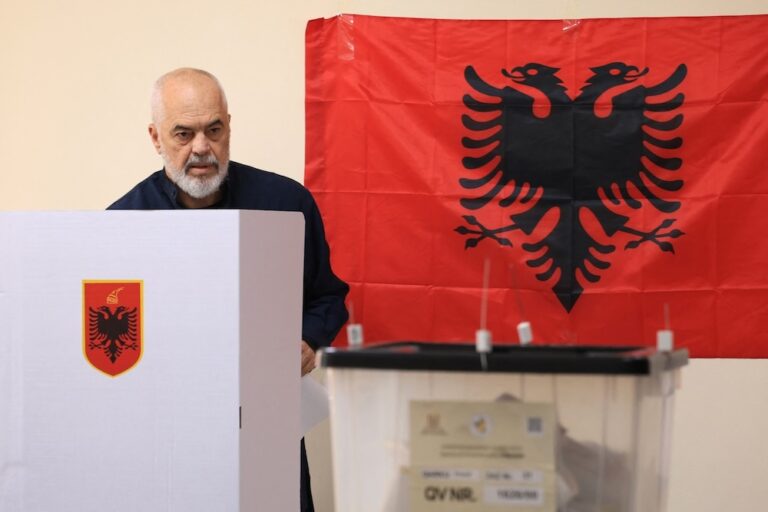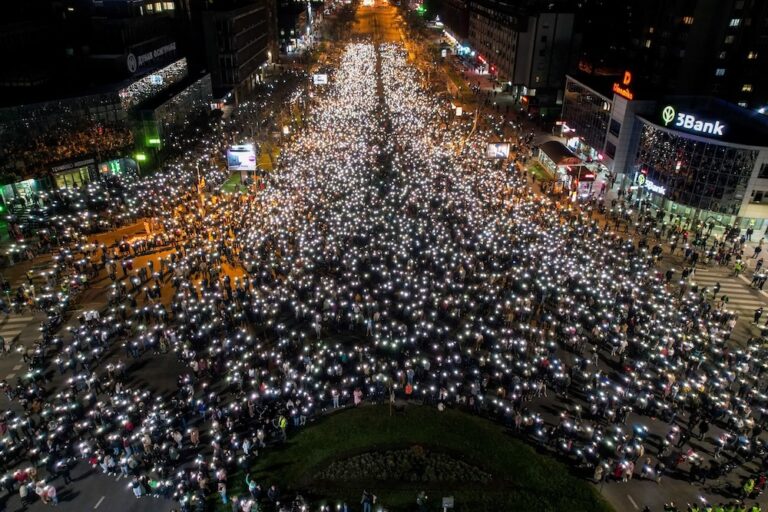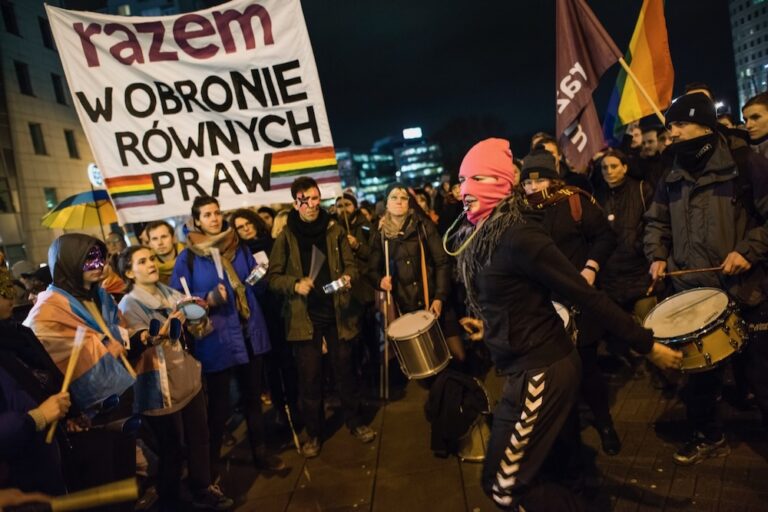The investigation into the 2007 murder in Kyrgyzstan of journalist Alisher Saipov was suspended, apparently indefinitely, in 2013. However, the recent reopening of the inquiry - following pressure from IFEX members - offers a glimmer of hope to the journalist’s family.
Osh is Kyrgyzstan’s oldest city. Lying just 5km from the porous border with Uzbekistan, it is often referred to as “the capital of the south”. This was where Alisher Saipov worked. He was a young, highly-regarded, ethnic Uzbek journalist with a passion for social justice.
On the evening of 24 October 2007, police in Osh were contacted by an unidentified individual who told them that Saipov was lying dead by the side of the road on Masaliev Street; he had been shot once in the leg and twice in the head. His killer had used a silencer and the murder is widely considered to have been a contract killing.
From the moment Saipov was killed, the authorities took a stop-start approach to the investigation, which was suspended – seemingly indefinitely – in 2013. Numerous rights groups, including IFEX members ARTICLE 19, the Committee to Protect Journalists, Human Rights Watch, PEN International and Reporters Without Borders maintained public pressure on the Kyrgyz authorities, urging them to bring Saipov’s killer – and those who ordered the killing – to justice.
After the 2013 suspension, there were few noteworthy developments in the case until October 2019, when Kyrgyzstan’s Prosecutor General responded to a letter sent by IFEX to President Sooronbay Zheenbekov the previous July, asking about the status of the investigation. The Prosecutor announced that the inquiry into Saipov’s murder had been reopened in August (although Saipov’s relatives had not been informed of this at the time).
IFEX’s Kyrgyz members – Media Policy Institute and Public Association “Journalists” – welcomed the news.
“We welcome the fact that Kyrgyz law enforcement authorities have resumed the investigation into the murder of Alisher Saipov,” said Media Policy Institute. “Twelve years have passed since the journalist’s death; we hope that the authorities will provide detailed information on the progress of the investigation to the Kyrgyz public and the international community. It is important for us that the state demonstrates its commitment to fight crimes against journalists.”
Background to the murder
When he was murdered, Saipov, 26, was a well-known figure in Osh’s journalistic community. He covered political and social issues on both sides of the border with Uzbekistan and was founder and editor of the newspaper Siyosat (Politics). He also regularly contributed to Radio Free Europe/Radio Liberty, Voice of America, and the regional news site Ferghana. One of Saipov’s biggest stories came in 2005, when he reported on the aftermath of the brutal massacre of hundreds of protesters in Andijan, Uzbekistan, by Uzbek troops.
Saipov not only wrote about the Uzbek refugees who fled across the border to Kyrgyzstan following this mass killing, he also helped many of them settle in the country. This was risky work: Uzbek agents who crossed the border in order to harass the refugees also targeted the NGO workers and journalists – like Saipov – who were trying to help them.
Before he was murdered, Uzbek state media ran a smear campaign accusing Saipov of trying to destabilize Uzbekistan through his reporting. During the same period, he received frequent, anonymous threats warning him to stop his journalistic work.
But he continued.
When news of Saipov’s murder was announced, it provoked international outrage: the US, UK and EU embassies in Bishkek called for an independent, thorough investigation. Kyrgyzstan’s then president, Kurmanbek Bakiyev, said that he would take personal responsibility for the investigation into the killing. Most informed fingers pointed to the Uzbek security service as the most likely party to have ordered – and carried out – the murder. Kyrgyzstan’s human rights ombudsman thought so too, and said so, publicly.
But the police investigators ended up going in another direction.
The investigation
When the police arrived at the scene on the night of the murder, they recovered three shells from the cartridges of a 9 mm PM pistol. A month later, on 24 November, a criminal investigation was opened; it was suspended two months later (this would be the first of a number of suspensions). It wasn’t until 2009 that the investigation seemed to be making serious progress.
On the night of 24 February 2009, in a completely unrelated case, police detained Abdufarid Rasulov in the Leilek district of the Batken region. In his car they found 17 grams of hashish and a 9mm PM pistol. He was placed in pre-trial detention in Osh and, three months later, experts matched the shells recovered at the scene of Saipov’s murder to Rasulov’s pistol.
Rasulov was tried for murder and was convicted in the spring of 2010; he was sentenced to serve 20 years in jail. Rasulov appealed, but the Supreme Court upheld the verdict in November 2010. Justice seemed to have been served, if only partially: whoever ordered the killing had not been identified.
However, a twist in the story came in 2012: Rasulov’s family presented the police with a video cassette showing that on the day of Saipov’s murder, Rasulov had been on holiday with his relatives. The Supreme Court ordered a review of the conviction and Rasulov was released in April that year.
The investigation into Saipov’s murder continued into the following year, but was suspended in December 2013.
The family’s response
The effect of all this on Saipov’s family has been devastating. In 2018, in a moving article published on the eleventh anniversary of his brother’s death, Shorukh Saipov (who decided to become a journalist after the authorities failed to find his brother’s killer) described how his family had suffered in the years following the murder – and also the disappointment they felt when they began to believe that the case would never be resolved.
Shorukh Saipov shared his thoughts with IFEX in October 2019, after the investigation was reopened. Welcoming the news, he said that his family expected President Zheenbekov to make a serious assessment of the murder case (as previous presidents had failed to do). Shorukh maintained that his brother was killed because of his work and he was keen to indicate where the reopened investigation should direct its focus:
“We understand that the killer who shot my brother cannot be detained; it’s obvious that he was fulfilling someone’s order, and it is quite possible that he is no longer alive. We want, as part of the investigation, the only witness to the murder – political scientist Ikbol Mirsaitov, who was next to Alisher [when he was killed] – to be questioned. He is hiding from our family. For 12 years Mirsaitov has avoided us: he doesn’t even want to tell us – Alisher’s family – what happened that evening. All my efforts to meet him have been in vain. Mirsaitov only appeared in court in 2010, and even then for only fifteen minutes. To all the lawyers’ and investigators’ questions, he limited himself to one answer: ‘I don’t remember.’ We consider Alisher to be a victim of the previous regime in Uzbekistan, led by Islam Karimov. It was a contract killing: my brother received warnings and threats from the Uzbek special services several times up until his death. My brother dreamed of real democracy in Central Asia, [where] there was no pressure on religious people, [where] people could express their opinions without fear”.
2 November is the International Day to End Impunity for Crimes Against Journalists. Check out IFEX’s No Impunity hub page to learn more about how we are working for justice in these cases – and how you can get involved.



